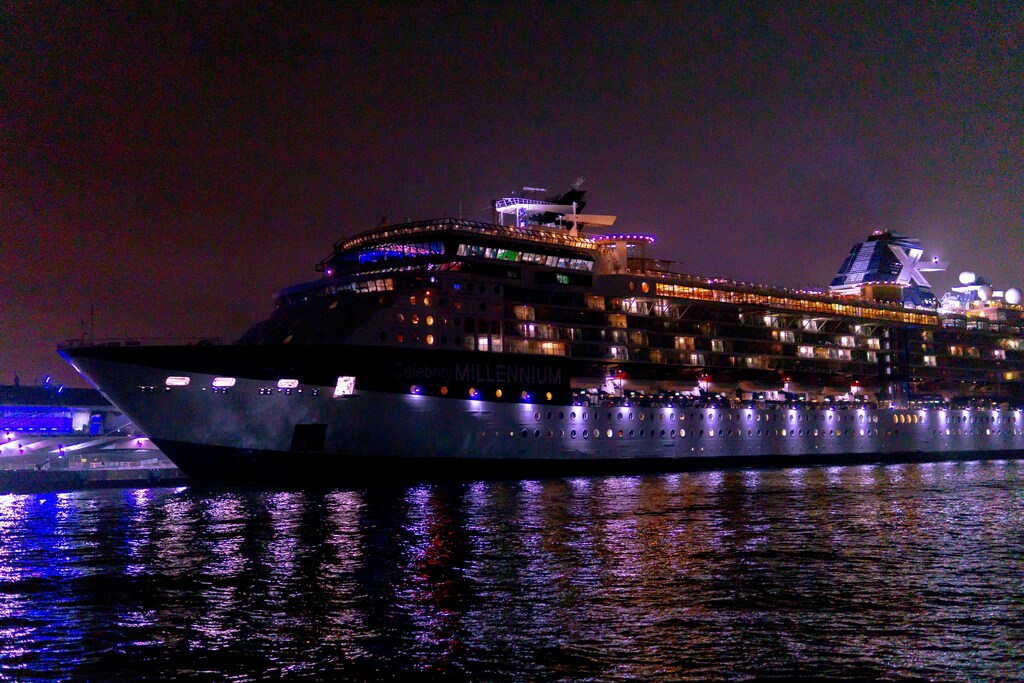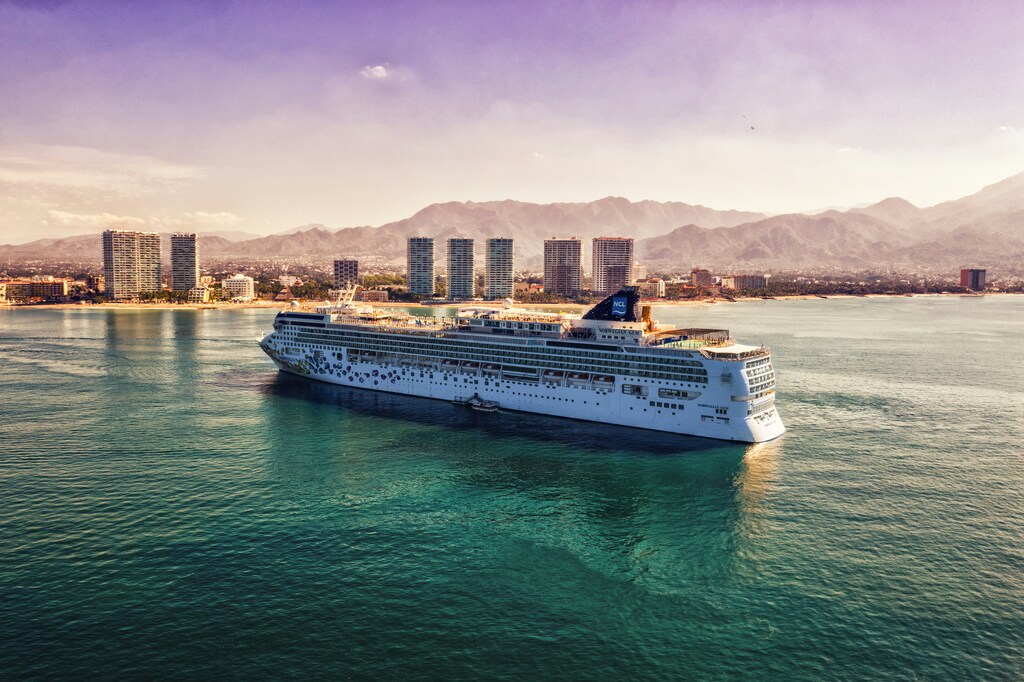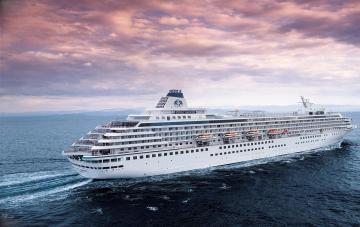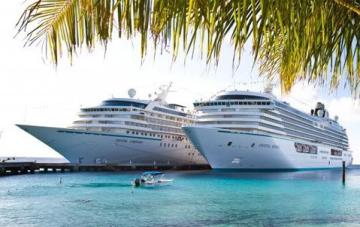
When planning a vacation, one of the most significant decisions you'll make is choosing between a cruise and a hotel stay. Both options offer unique experiences and amenities, but which one provides the best value for your money? In this article, we will delve into the cost-effectiveness of each option, helping you make an informed decision for your next getaway.
Cruises have become increasingly popular in recent years, offering all-inclusive packages that cover accommodation, meals, and entertainment. This can make budgeting simpler, as you have a clear understanding of most expenses upfront. Additionally, cruises provide the opportunity to visit multiple destinations without the hassle of frequent packing and unpacking. However, there are hidden costs to consider, such as shore excursions, specialty dining, and gratuities, which can add up quickly.
On the other hand, a stay in a hotel allows for more flexibility in your travel plans. You can choose from a wide range of accommodations, from budget-friendly options to luxurious resorts. This flexibility can make it easier to control costs, especially if you take advantage of deals and discounts. Moreover, staying in one location means you can immerse yourself in the local culture and enjoy a more personalized experience. Nevertheless, you need to budget for meals, transportation, and entertainment, which can sometimes be unpredictable.
Ultimately, the choice between a cruise and a hotel stay depends on your personal preferences and travel style. By considering the pros and cons of each option, you can determine which is more cost-effective for your vacation. Whether you prefer the convenience and adventure of a cruise or the flexibility and cultural immersion of a hotel stay, careful planning and budgeting will ensure a memorable and enjoyable trip.
Cruise vs. Hotel: Vacation Cost Analysis
When planning a vacation, understanding the cost differences between choosing a cruise or a hotel stay can be crucial for budgeting. Both options offer unique experiences, but their pricing structures vary significantly. Here’s a breakdown of the key cost factors to consider for each:
-
Accommodation Costs:
Cruise prices typically include your stateroom, which varies from basic interior rooms to luxurious suites. Hotel prices, on the other hand, depend on the location, amenities, and room type, ranging from budget options to high-end resorts.
-
Meals:
One of the major cost advantages of cruises is that most meals are included in the package. This usually covers breakfast, lunch, dinner, and snacks. In contrast, hotel stays often require budgeting for meals separately unless you book an all-inclusive resort.
-
Entertainment and Activities:
Cruises offer a variety of onboard entertainment and activities at no additional cost, including shows, pools, sports facilities, and children’s programs. Hotels may provide some complimentary activities, but guests often need to pay extra for shows, tours, and other entertainment options.
-
Transportation:
On a cruise, transportation between destinations is included, which can be a significant saving compared to traveling between different locations while staying in hotels. However, getting to the cruise port may incur additional costs.
-
Gratuities and Service Fees:
Cruises often have mandatory gratuities and service fees, which can add up. Hotels may also charge service fees, especially resorts, but these are typically less predictable and vary widely.
-
Excursions and Shore Activities:
While cruises include onboard activities, excursions and shore activities are usually extra. Hotels may offer packages that include some activities, but this depends on the destination and the type of hotel.
To summarize, cruises often provide a more all-inclusive experience, which can simplify budgeting and potentially lower overall costs due to the inclusion of meals, entertainment, and transportation. Hotels offer flexibility in choosing different dining and activity options but may lead to higher variable costs. Carefully consider what is included in each option and your personal preferences to determine the most cost-effective choice for your vacation.

Understanding All-Inclusive Deals
When planning a vacation, one of the most attractive options is the all-inclusive deal. These packages promise a hassle-free experience where most of your needs are covered in one upfront payment. However, understanding what these deals truly include and how they compare between cruises and hotels is essential for making an informed decision.
What's Typically Included?
All-inclusive deals generally cover accommodation, meals, beverages, and various activities. However, the specifics can vary significantly between cruises and hotels. Here’s a breakdown of typical inclusions for each:
| Category | Hotel All-Inclusive | Cruise All-Inclusive |
|---|---|---|
| Accommodation | Room or suite | Cabin |
| Meals | Buffet and à la carte restaurants | Main dining room and specialty restaurants |
| Beverages | Soft drinks, alcohol (some limitations) | Soft drinks, alcohol (some limitations) |
| Activities | Sports, entertainment, kids' clubs | Onboard entertainment, pools, fitness centers |
| Extras | Some excursions, spa services, premium beverages | Shore excursions, specialty dining, premium beverages |
Hidden Costs and Considerations
While all-inclusive deals can simplify budgeting, it's important to be aware of potential hidden costs. For hotels, extras like premium dining experiences, spa treatments, and excursions may not be included. Similarly, cruises often charge additional fees for shore excursions, specialty dining, and certain activities.
Articoli popolari
Another consideration is the tipping policy. Some all-inclusive packages include gratuities, while others do not, which can add unexpected costs. Additionally, the quality and variety of included services can vary; a thorough review of what's covered in your specific package is essential to avoid surprises.
In summary, while all-inclusive deals can offer significant convenience and potential savings, it's crucial to scrutinize what each package includes and consider additional costs that may arise. Whether choosing a hotel or a cruise, understanding these details will help you make the most cost-effective choice for your vacation.
Evaluating Hidden Expenses
When planning a vacation, it's crucial to look beyond the upfront costs of cruises and hotels to understand the hidden expenses that might impact your budget. While the initial prices can seem straightforward, numerous additional costs can arise during your trip.
Onboard Expenses
For cruises, many activities and amenities that seem included may come with extra charges. While meals in the main dining rooms and some beverages are typically covered, specialty restaurants, alcohol, and certain non-alcoholic drinks often cost extra. Additionally, onboard activities such as spa treatments, fitness classes, and shore excursions can quickly add to your expenses. Cruise lines may also charge for internet access and gratuities, which are either automatically added to your bill or suggested at the end of your trip.
Hotel Surprises
Hotels can also present hidden costs that catch travelers off guard. Resort fees, which cover amenities like pools, gyms, and Wi-Fi, can significantly increase your bill and are often not included in the advertised room rate. Parking fees, particularly in urban areas or popular tourist destinations, can add up if you're traveling by car. Minibar charges and room service can also be surprisingly high. If you plan to use the hotel's facilities for events or business purposes, conference room rentals and business center fees may apply.
Both cruises and hotels may offer enticingly low base prices, but the key to a cost-effective vacation lies in understanding and planning for these hidden expenses. Budgeting for extras and reading the fine print can help ensure that your relaxing getaway doesn’t come with an unexpected financial burden.

Comparing Accommodation Amenities
When deciding between a cruise and a hotel for your vacation, one of the critical aspects to consider is the amenities provided by each type of accommodation. Both offer unique perks that cater to different preferences and needs.
Amenities on a Cruise
- All-Inclusive Dining: Most cruises offer a variety of dining options included in the package, ranging from casual buffets to formal dining rooms, and specialty restaurants.
- Entertainment: Cruises are renowned for their onboard entertainment, including Broadway-style shows, live music, comedy acts, and movies.
- Activities: There are numerous activities available such as swimming pools, rock climbing, ice skating, mini-golf, and fitness centers.
- Excursions: Cruises often provide organized shore excursions at various ports of call, allowing you to explore new destinations without the hassle of planning.
- Wellness Facilities: Many ships feature spas, saunas, and beauty salons to help you relax and rejuvenate.
Amenities at a Hotel
- Location-Specific Services: Hotels often provide amenities tailored to their location, such as ski rentals in mountain resorts or beach gear at coastal properties.
- Room Service: Unlike cruises where dining is often communal, hotels frequently offer 24-hour room service for private, in-room dining experiences.
- Customized Experiences: Hotels can provide more personalized services, such as concierge assistance for booking local tours, making dinner reservations, and arranging transportation.
- Meeting and Event Spaces: Hotels are better equipped for business travelers and events, offering conference rooms, ballrooms, and business centers.
- Pet-Friendly Options: Many hotels offer pet-friendly accommodations, making it easier for guests to travel with their furry friends.
Ultimately, the choice between a cruise and a hotel depends on your vacation preferences and the specific amenities you value most. Cruises provide a self-contained, entertainment-rich environment with seamless travel between destinations, while hotels offer more flexibility and personalized services tailored to individual locations.






